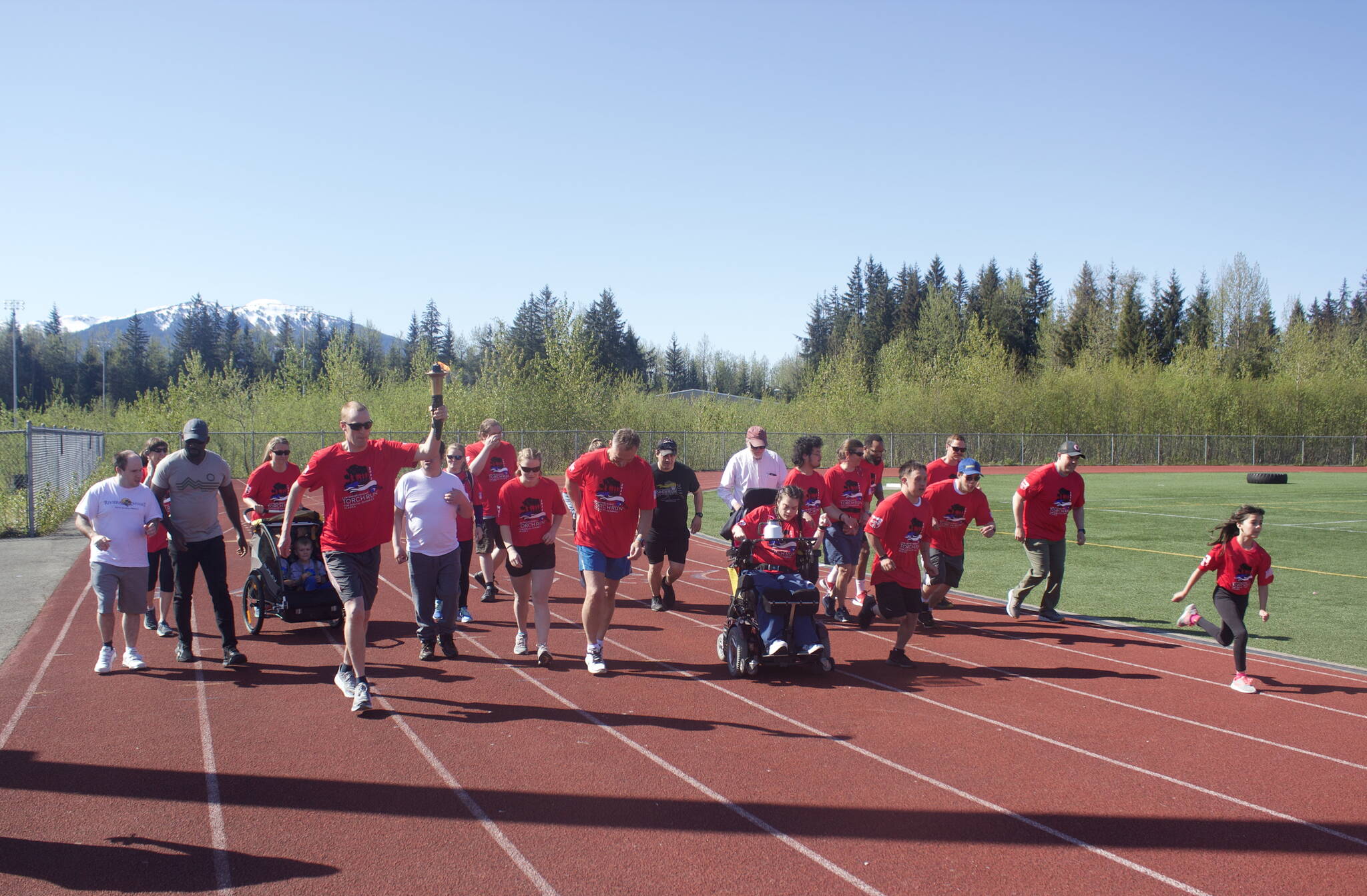Fu Bao worked up a sweat long before he even got to the starting line, doing a multitude of radio interviews and other preparations to help eight of his fellow athletes with disabilities participating Saturday morning in the annual Alaska Law Enforcement Torch Run.
“I feel this is important for me to do, to support people with disabilities,” he said just before the race, which started at 10 a.m. in 15 communities across the state.
The lifelong Juneau resident is an advocate for other events for the disabled, a member of the local Special Olympics bowling team and — once the economic ills of the COVID-pandemic pass — is planning to open his self-titled business Photos by Fu Bao.
Given all that dashing about, Bao wasn’t planning on burning out in the sunny 70-degree heat on the two-mile race course.
“I’m mostly walking,” he said.
A total of about 30 race participants in Juneau, including the nine athletes with disabilities, aided by about 10 volunteers raised about $7,100 for the event seeking to raise $150,000 statewide for Special Olympics Alaska communities.
Among the racers benefiting in the near future from such fundraising efforts is C.J. Umbs, 27, one of three Juneau residents scheduled to participate as a bowler in the Special Olympics Summer Games in June. Like many of is peers at Saturday’s race he’s a multisport athlete, including participating internationally as a swimmer at the world games in 2015
”We keep him in the pool one or twice a week,” said Chris Umbs, who is C.J.’s father. C.J. took up bowling during the colder months because “he doesn’t like winter sports like skiing.”
Carrying the torch during the run was Branden Forst, an officer who said he’s been a participant for about the past 10 years
“I usually end up carrying it,” he said. “You’ve got to hold it out. That wears you out after a little bit.”
A briefing about the race was provided just before the start by Kirt Stage-Harvey, a Juneau Police Department detective, who noted others were welcome to share his colleague’s burden.
”He’s welcome to pass it on because it gets heavy,” Stage-Harvey said.
As for the rules, there weren’t many.
“Run, walk, hike, cartwheel — whatever it takes,” Stage-Harvey said.
All of the participants started with a lap around the track before taking a nearby trail into the woods for their preference of a two-mile or 5K run, ending with a final lap around the track.
The fastest runner — not to be confused with the winner(s) — was Leah Welch, 18, a Juneau resident who spent the past year homeschooling in the Mat-Su Valley so she could train as a figure skater. Her father is an Alaska State Trooper, so she has participated in the local race for the past three years — always finishing near but not at the front of the pack.
“My little brother is usually with me and we run together, and at the end he’s usually a good 100 feet out in front,” she said.
Welch’s first-across-the-finish-line time was…um, a mystery she didn’t particularly care about.
“I don’t have anything to time myself,” she said.
Another runner notching a landmark during the morning was Giuliane Russell, 7, who observed at the finish line “I’m the youngest runner here who’s actually running.” But much like Welch with her speediest time and Forst’s long-distance arm endurance by going the distance with the torch, Russell was more impressed with the efforts of others beyond herself.
“I saw a video of a 5-year-old running in the real Olympics,” she said.
The last person to cross the finish line — not to be confused with the entirely absent concept of any loser(s) — was Sabrina Richmond, the lone wheelchair racer who technically was the second-to-last participant across since her dog Koa was sitting on her lap. Like most participants in multiple races who have good and less-good races, Richmond said she felt particularly good about this one.
“This year it’s sunny,” said Richmond, whose endeavors off the race course include creating paintings for Alaska Ability Art.
• Contact reporter Mark Sabbatini at mark.sabbatini@juneauempire.com.

